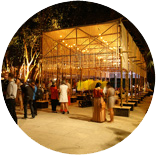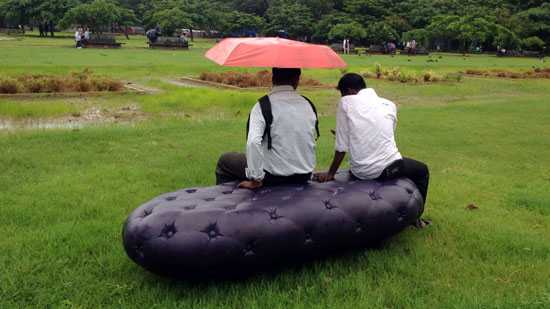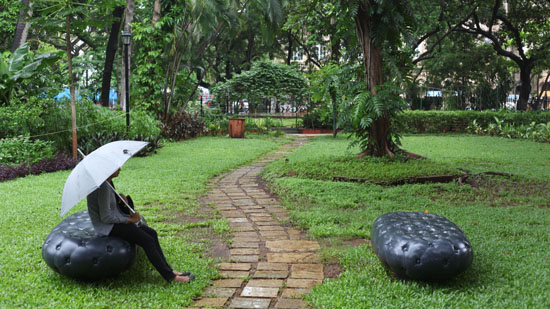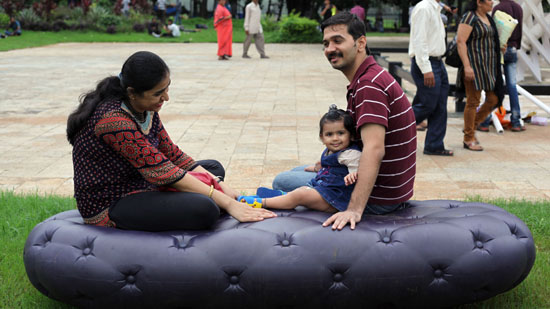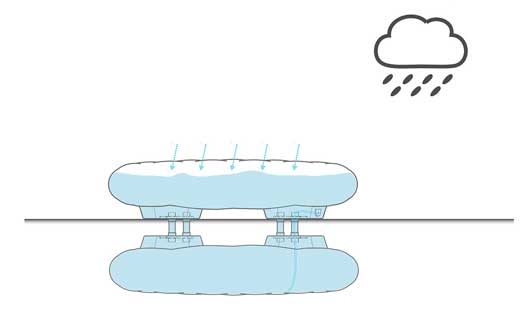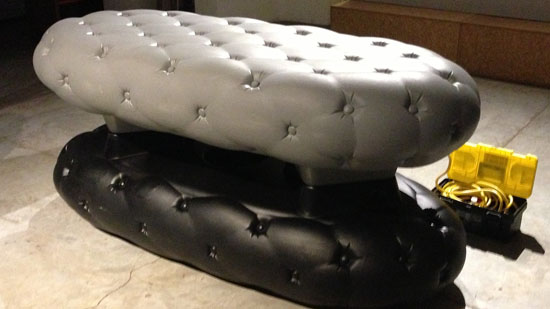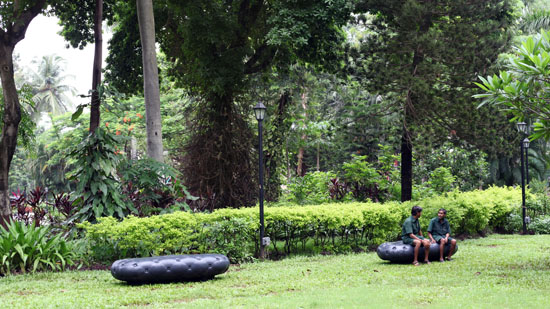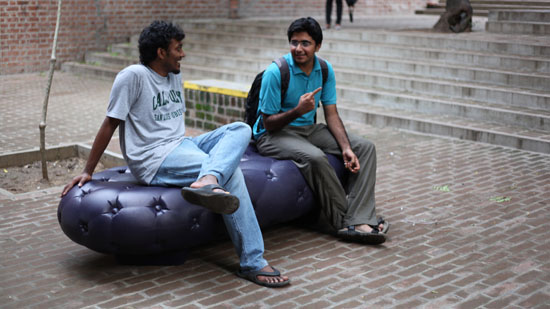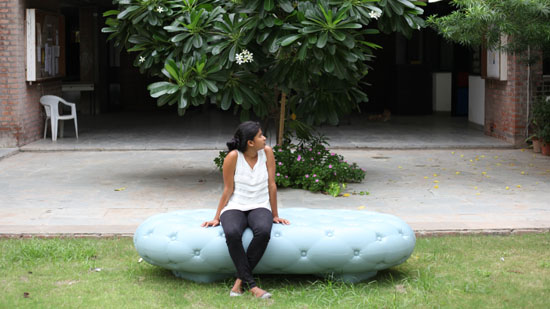Water Bench
Water is our most essential resource; yet, increasingly, it is synonymous with inequality, disease, and environmental degradation. Demand for water continues to increase drastically, not only for drinking, but also for sanitation, manufacturing, leisure, and agriculture. In developing economies particularly, there is often a stark contrast between those urbanites whose lives are shaped by the daily task of securing a minimum amount of water, and the emergence of water-dependent urban landscapes.
At the BMW Guggenheim Lab in Mumbai, there were many discussions about the direct relationship between water and the city’s myriad infrastructural and civic problems. Mumbai’s public spaces, in particular, are sharply divided between arid and dusty plots in the poorer neighborhoods of the city, and the lush, green, water-intensive parks in the more affluent South. Given that water permeates all physical and social divides in the city, large-scale, top-down planning must be supplemented with local, micro-scale solutions.
The Water Bench, created as a response to these concerns, is the first prototype in a series of water-conservation solutions that MARS Architects has developed in connection with the BMW Guggenheim Lab. The Water Bench aims to cut back consumption of public water used to irrigate parks and green spaces in cities. Designed specifically for subtropical climates (parts of Latin America, India, Southeast Asia, and Australia), it makes use of the unique condition of continuous, heavy rainfaII during the wet season, which allows the bench to fill its internal reservoir. This water is then used to irrigate surrounding vegetation during the eight-month dry spell that follows.
In addition to collecting rainwater, the Water Bench provides public seating. Its design is inspired by Chesterfield sofas: the aesthetic of eighteenth-century-style upholstery becomes functional as the grooves and seams in the seat guide the water to the buttons, which act as water inlets to tanks inside the hollow bench. In this way, the surface remains dry for sitting, bringing the comfort of an urban living room to outdoor public spaces.
The Water Bench is a modular design made from partially recycled polyethylene. With three different storage capacities—500, 1,000, and 1,800 Iiters (132, 264, and 475.5 gallons)—the benches fit different urban scenarios and site conditions ranging from terrace gardens to public parks. The smallest unit that doesn’t require groundwork is best equipped for roadside installation; the medium size has an underground tank, ideal for gardens and greenhouses; and the Iargest unit is best suited for public parks and playgrounds.
The first Water Benches have been installed in Mumbai’s Horniman Circle and Cross Maidan for a one-year prototyping phase, starting at the beginning of monsoon season. The goal for this project’s implementation in Mumbai is to install enough units per park to make them both verdant and independent from public water.
Learn more about the Water Bench project at waterbench.com.
MARS Architects is a Dutch-Chinese research and design firm based in Shanghai, focused on sustainable architecture and urban planning. Over the past 10 years, MARS Architects has strived to develop an ecology of solutions that address the most urgent issues in developing cities around the world, from access to drinking water to public space and transportation. The firm’s multidisciplinary team of architects, planners, and product designers operate internationally to realize projects across all scales in complex urban contexts.
The Water Bench was created by MARS Architects in connection with the BMW Guggenheim Lab and is licensed under a Creative Commons Attribution 3.0 Unported License.

